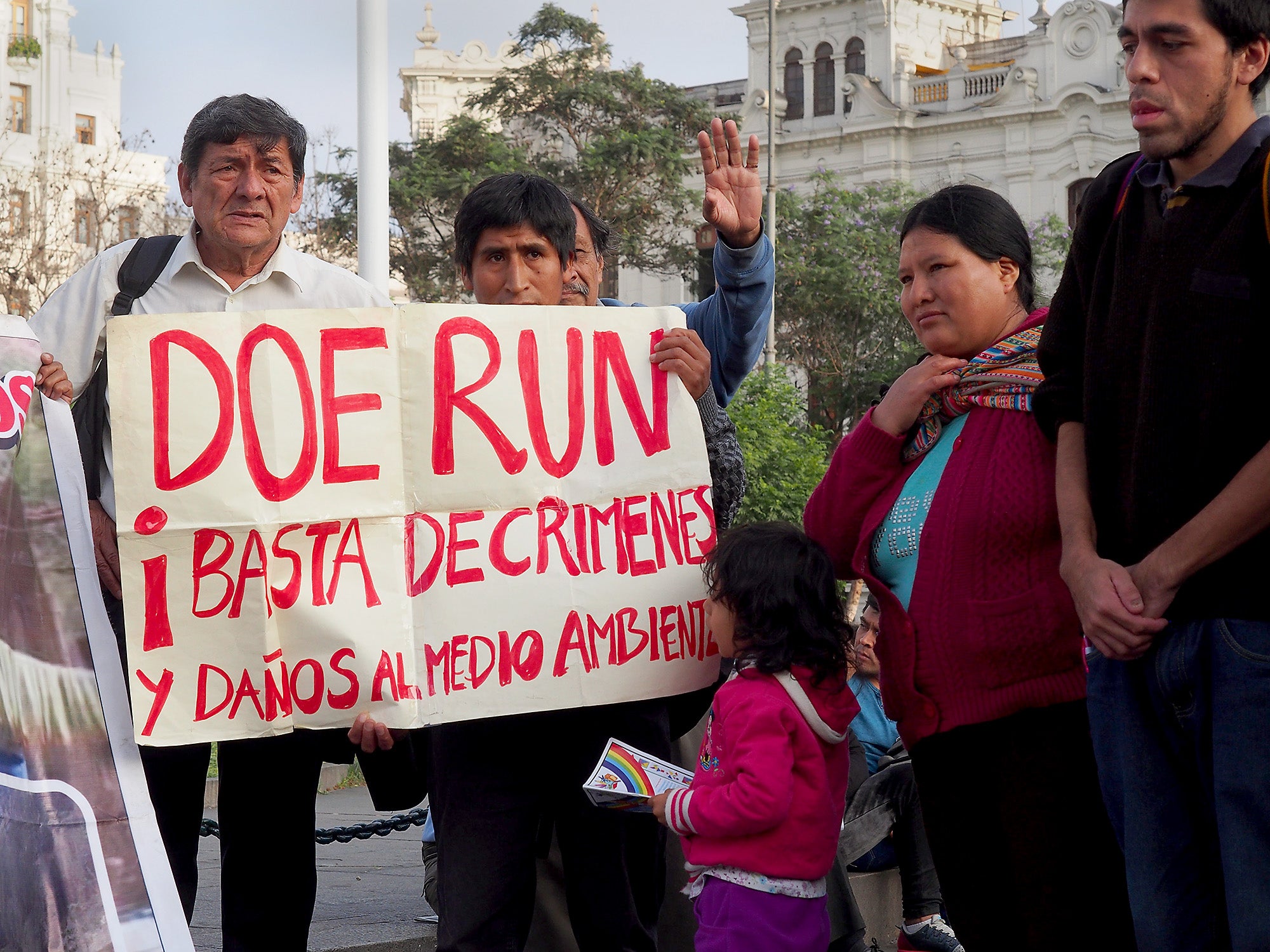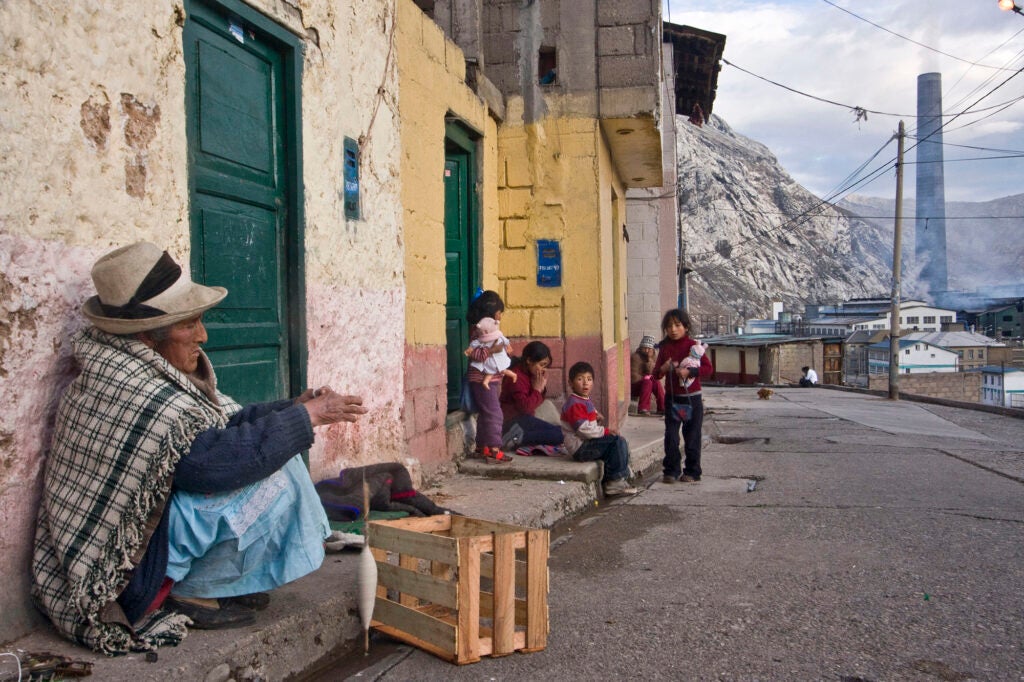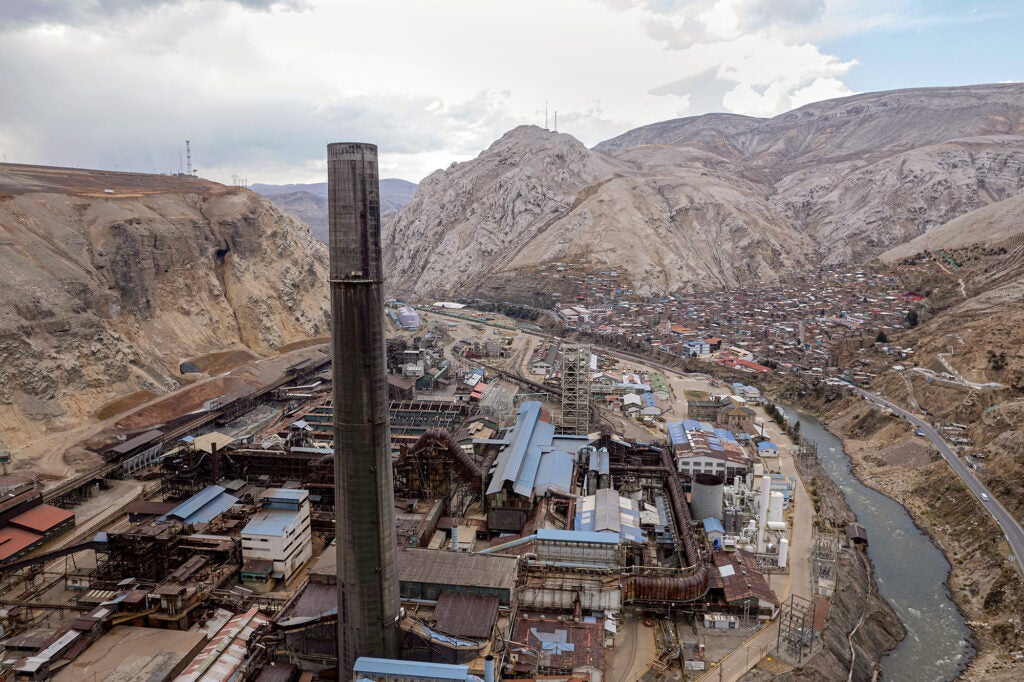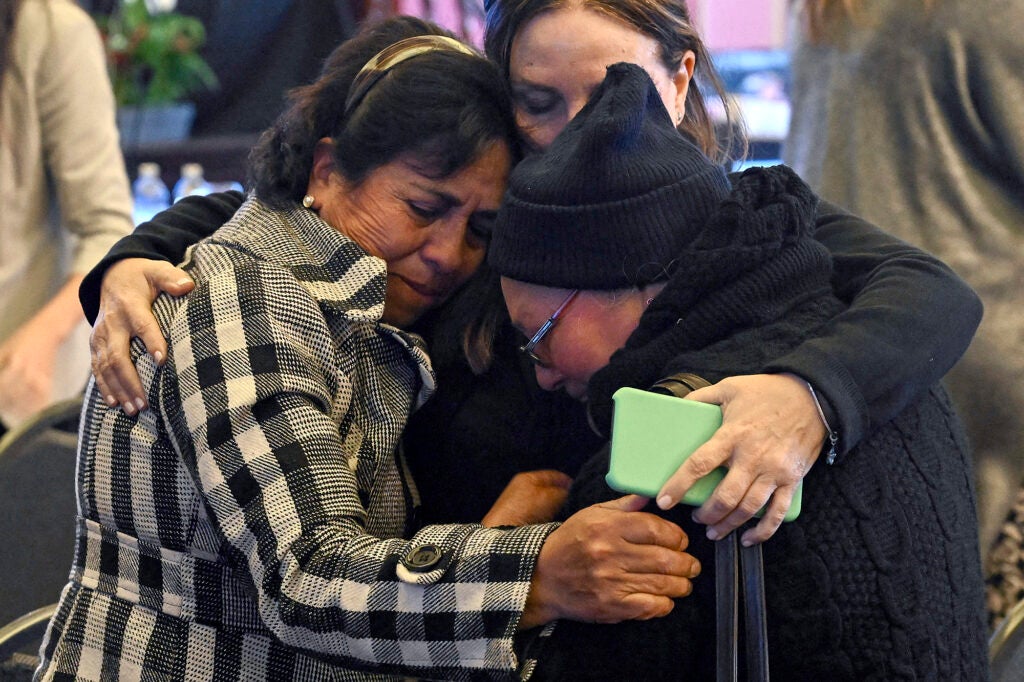Historic Court Decision Puts Big Polluters on Notice in Latin America
An international court ruled in favor of the people of La Oroya, Peru, finding that the government violated their right to a healthy environment.

This page was published a year ago. Find the latest on Earthjustice’s work.
A small mountain community in the Peruvian Andes has won a victory that could echo across Latin America.
In a historic ruling, the Inter-American Court of Human Rights has charged the Peruvian government with violating its people’s right to a healthy environment by allowing a century-old metal smelter to contaminate the community of La Oroya. In its scathing decision, the Court found that the government “was aware of these high levels of contamination” yet chose not to take appropriate actions to prevent it, “nor to provide care for persons who had acquired diseases” caused by the pollution.
La Oroya is perched over 12,000 feet high in the Andes along the banks of the River Mantaro – a river so polluted with lead and arsenic that one local called it “a dead river.” Huge swaths of the surrounding mountains have been cleaved for mining, and pollution from the smelter has killed much of the area’s vegetation. Yet generations of locals still live here, fighting to maintain their homes and health.

Residents of La Oroya, Peru, photographed in 2008 near the the smelter complex that has made the city one of the most polluted places on earth. (Ernesto Benavides / AFP via Getty)
Since the smelter began operating in 1922, the people of La Oroya have been exposed to extreme levels of lead and other harmful contaminants, including arsenic, cadmium, and sulfur dioxide. At one point, 99% of children under 6 years old in La Oroya tested had lead levels known to cause severe health harms. Many residents suffer from developmental and behavioral disorders, cardiovascular diseases, chronic respiratory illness, and cancer, among many other health issues.
Peruvian researchers and La Oroya locals who tried to disseminate information about the smelter’s toxic impacts were harassed and intimidated. In the absence of government action, the Latin America-based environmental legal group the Inter-American Association for Environmental Defense (AIDA), with the support of Earthjustice, began advocating for the people of La Oroya. In 2006, AIDA and Earthjustice, together with other groups, filed a petition against the Peruvian government at the Inter-American Commission on Human Rights. AIDA and APRODEH, a Peruvian human rights organization, represented families from La Oroya in the proceedings.
In the 15 years it took the complaint to get before the Court, the Peruvian government repeatedly gave the smelter’s owner, Doe Run Peru (a subsidiary of the U.S.-based Renco Group, Inc), free leave to emit massive levels of air pollution that frequently went well beyond Peruvian regulations and World Health Organization standards for air quality. Since the government sold the plant in 1997, Doe Run Peru was given special exemptions from complying with environmental laws until it could install much needed technology to control pollution. Later, despite the company repeatedly failing to install these controls, the government granted extension after extension allowing the company to continue operating and polluting.
Doe Run Peru eventually declared bankruptcy and creditors later sold the smelter to its local workers in La Oroya – potentially transferring its environmental liability onto the people it had poisoned.

Aerial view of the smelting complex in the city of La Oroya, Peru in 2022. La Oroya is one of the most polluted localities on the planet. (Ernesto Benavides / AFP via Getty Images)
Now, two decades after the people of La Oroya first sought justice, the Inter-American Court of Human Rights has ruled that the Peruvian government violated their right to a healthy environment. The Court found that, over decades of changing ownership, the government knowingly “allowed the existence of pollution levels that put people’s health at significant risk.”
Critically, the court is requiring the Peruvian government to make reparations to the people who have been impacted by its inaction. Those measures include prosecuting those responsible for harassing locals as they sought justice; preparing an environmental remediation plan for La Oroya’s contaminated air, water, and soil; updating air quality standards to guarantee the protection of the environment and public health; providing monetary compensation and free medical care to residents with symptoms and illnesses related to the mining; and ensuring that future operations of the smelter and all mining activity in Peru comply with international environmental standards.
This ruling sets a historic precedent for other polluters across Latin America. Millions of people in Latin America breathe polluted air in countries where air quality regulations – if they exist at all – are not adequate or enforced. Advocating for human rights against big polluters in the region can be deadly. Corporations are now on notice that exposing people to unhealthy levels of industrial pollution is a violation of international law, and that governments must hold polluters accountable.

Yolanda Zurita, left, and Rosa Amaro, right, victims of toxic pollution in La Oroya, Peru, are embraced after the Community of La Oroya case against the Peruvian State hearing during the 153rd session sessions of the Inter-American Court of Human Rights in Montevideo, Uruguay in 2022. (Pablo Porciuncula / AFP via Getty Images)
“Twenty years ago, when this fight started, I was carrying my banner saying that the health of the children is worth more than gold,” recalls Don Pablo, a resident of La Oroya. “We never gave up, and now I am very happy with the Court’s decision.”
Other Earthjustice efforts to expand the right to a healthy environment globally beyond this case include decades of advocacy culminating in the 2022 UN General Assembly recognition of the right to a healthy environment as a universal human right. Earthjustice is also participating in a public consultation process the Inter-American Court is currently holding regarding the responsibility of governments to protect human rights in the face of the ongoing climate crisis. That proceeding could potentially result in an additional historic precedent that will help support climate justice litigation across the Americas.
The International Program partners with organizations and communities around the world to establish, strengthen, and enforce national and international legal protections for the environment and public health.